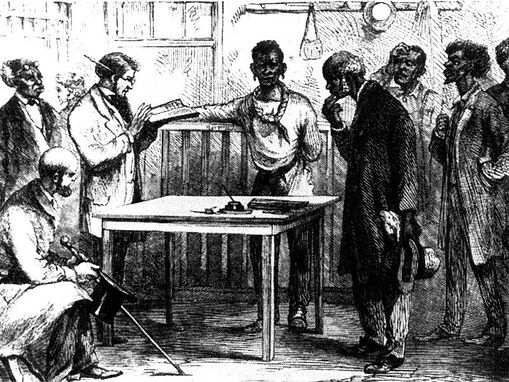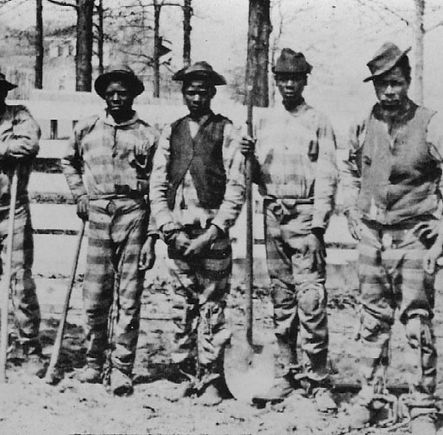Freedom in Chains
The Black Codes
One of the first set of laws created after the Civil War were The Black Codes. These were a group of laws that were created to limit the rights of African Americans. They were taken from the old slave laws and were created to apply solely to former slaves. White Southerners validated the codes by stating that The Black Codes were necessary to contain the newly freed African Americans and ensure that they would not take revenge or cause disturbances in town. Southerners argued that the former slaves would not be dignified enough to successfully flourish in society, and if their rights were not restrained, the black men and women would become dangerous and uncontrollable. However, the laws criminalized black life and made it virtually impossible for any black man to live anywhere but under the protection of a white man. They made the most basic, everyday action a crime. For example, it was a crime for an African American to walk beside a railroad, speak loudly in the company of women, or to sell his crop in the dark. (Slavery By Another Name) In some states, like St. Landry, Louisiana, African Americans needed special permission to sell their crops (Perritano 20). Southern legislatures made these laws so they could continue to have slave labor without technically owning slaves, therefore pleasing the northern abolitionists.
The most powerful of these laws were the vagrancy statutes which made it illegal for African Americans to be unemployed in Southern states, it required freedmen to sign contracts for a year's work. Those without contracts would be arrested to work on a plantation (Davidson, West, Castillo, Stoff 608). African Americans had no skills, because of their former work, so they were forced back into labor on a plantation. This type of labor was called sharecropping. This ensured that the Southern plantation owners kept their laborers after the Civil War, and trapped African Americans in an endless cycle of poverty. The Black Codes were clearly unconstitutional and were annulled just one year after their enactment. However, the laws did have some effect. The South grew accustomed to the racial subordination of African Americans and continued to treat the newly freedmen in a servile manner.

